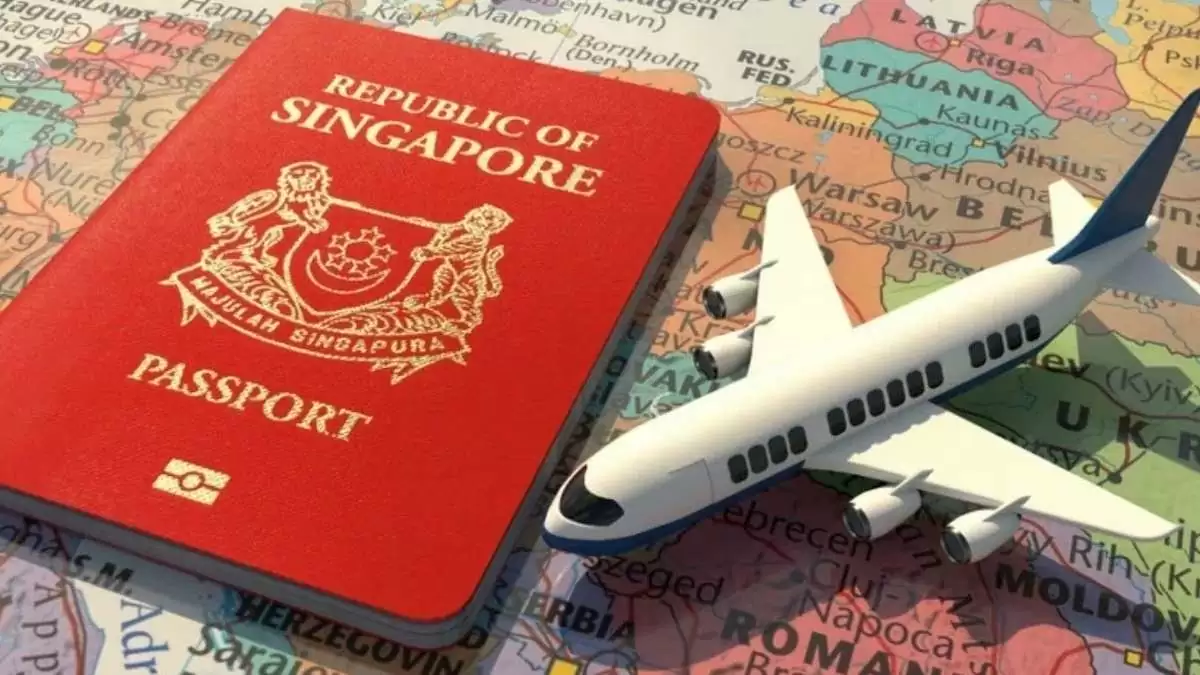Top-Ranked Passports for 2025: Where Does Yours Stand?
In a world where mobility is a prized privilege, the ranking of the world’s most powerful passports for 2025 provides a glimpse into the travel freedoms enjoyed by citizens of different nations. As global travel continues to recover and evolve, the Henley Passport Index’s latest quarterly update highlights the passports that grant unparalleled access to destinations worldwide. Let’s dive into the top-ranked passports and explore the nuances of global mobility.
Top-Ranked Passports for 2025: Singapore Takes the Crown
The title of the world’s most powerful passport for 2025 belongs to Singapore. This small yet influential city-state has reclaimed its position at the top, offering its citizens visa-free access to an impressive 195 out of 227 destinations globally. For Singaporean passport holders, travel is synonymous with freedom, as this red document opens doors like no other.

Japan Secures Second Place
Following closely behind Singapore is Japan, holding the silver medal in global mobility. Japanese passport holders enjoy visa-free access to 193 destinations, including neighboring China, which reinstated visa-free travel after lifting its pandemic restrictions. This achievement underscores Japan’s strong diplomatic ties and regional influence.
Shared Third Place: EU’s Powerhouses and South Korea
The third spot in the ranking is shared by several European Union member states—France, Germany, Italy, Spain, and Finland—along with South Korea. Citizens of these countries enjoy visa-free travel to 192 destinations, emphasizing the strength of European and Asian passports in facilitating global mobility.
The Schengen Area’s Influence at Fourth Place
Seven EU nations, including Austria, Denmark, Ireland, Luxembourg, the Netherlands, Sweden, and Norway, occupy the fourth position. These countries benefit from the European Union’s border-free Schengen area, which ensures seamless travel within its member states and beyond. Their passports grant access to 191 destinations without the need for prior visas.
Fifth Place: A Mix of Global Players
Five countries—Belgium, New Zealand, Portugal, Switzerland, and the United Kingdom—hold the fifth spot. Each of these nations offers visa-free access to 190 destinations, showcasing their robust diplomatic relationships and global standing.
Top-Ranked Passports for 2025: The Global Mobility Gap
While the above-mentioned passports are virtually unrestricted within the countries of the world, mobility remains severely limited for most people. The middle ranks the Henley Passport Index placing Afghanistan at 106th with citizens enjoying visa-free countries only 26. Syria and Iraq are on its heels with having access to 27 and 31, respectively. The difference in power between the first and the last ranking points to the deep inequalities in the freedom to travel.
Christian H. Kaelin, Chair of Henley & Partners, reflects on this disparity: That means a new, critical evaluation of citizenship and the fact that it depends on changes in birth – while climate change leads to increased global temperatures, with climate refugees uprooted and their homes made uninhabitable. At the same time, political violence and warfare in many parts of the world push millions of individuals to become internally displaced persons in their search for shelter and protection.”
Climbers and Fallers in 2025
The positions for 2025 also highlighted some key risers and declines in the context of global mobility. United Arab Emirates is one of the success stories of the list having risen 32 places in the last decade to be the 10th best country in the ranking. The UAE’s growth is indicative of visa-free movement having access to 185 countries, diplomacy, and partnerships around the globe.
China, another big mover, has gone up from 94th place in 2015 to 60th in the year 2025 due to its increasing international clout and better travel deals.
Conversely, some passports have experienced declines. Venezuela tops the list of fallers, while the United States, once ranked 2nd, has dropped to 9th place. The UK has also slipped in the rankings, reflecting shifting geopolitical landscapes and changing visa agreements.
The Role of Alternative Rankings
The Henley Passport Index is one of the quantitative methodologies utilized to determine the level of an international movement. The other well-known ranking is Arton Capital’s Passport Index which ranks passports using visa-open/visa-on-arrival access. Regarding the 2025 index, Arton ranks UAE with a score of 180 while Spain takes second place with a rate of 179. Arton’s data are in real-time and are collected from governmental sources, which gives a different perspective on passport power.
The Top 10 Most Powerful Passports for 2025
- Singapore: 195 destinations
- Japan: 193 destinations
- France, Germany, Italy, Spain, Finland, South Korea: 192 destinations
- Austria, Denmark, Ireland, Luxembourg, Netherlands, Sweden, Norway: 191 destinations
- Belgium, New Zealand, Portugal, Switzerland, United Kingdom: 190 destinations
- Greece, Australia: 189 destinations
- Canada, Poland, Malta: 188 destinations
- Hungary, Czechia: 187 destinations
- Estonia, United States: 186 destinations
- Lithuania, Latvia, Slovenia, United Arab Emirates: 185 destinations
To view the full list visit Henley & Partners
What These Rankings Mean for You
For travellers, passport rankings are more than just numbers; they represent access, freedom, and opportunity. While citizens of top-ranked countries enjoy seamless global mobility, those with less powerful passports face significant challenges, including lengthy visa processes and restricted access to many destinations.
These rankings also highlight the importance of diplomacy and international cooperation in enhancing travel freedoms. As the global landscape continues to evolve, countries must adapt to changing geopolitical and environmental realities to ensure equitable mobility for all.

Where Does India Stand in the List
India stands at the 85th position on the Henley Passport Index for 2025, granting its citizens visa-free access to 57 destinations worldwide. This marks a modest improvement in global mobility for Indian passport holders, although it remains behind many other nations.
Among the countries accessible without a visa are popular travel destinations such as Indonesia, the Maldives, and Thailand. The strength of the Indian passport is influenced by the country’s expanding diplomatic ties and ongoing efforts to bolster its global presence.
Despite challenges related to visa restrictions in several regions, India’s growing economic influence and strategic international partnerships are gradually enhancing the value of its passport.







